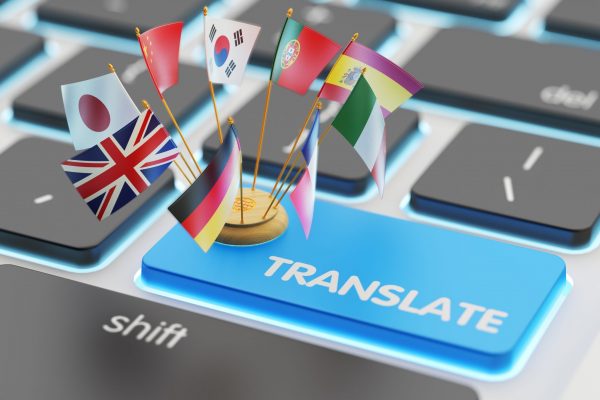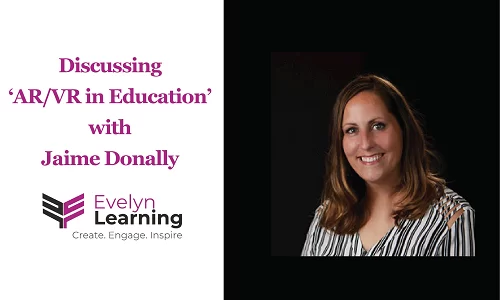Localization is a way of connecting with consumers by adopting their language and culture. As stated in our blog Localization: An Introduction, it is a part of larger processes of the global market, termed as globalization and internationalization. These processes are not only applied to trade, but to education as well. The emerging e-learning methods are gradually becoming the preferred way of learning in all parts of the world. This fuels the demand for e-learning localization.
What is E-Learning Localization?
E-Learning localization incorporates the process of converting an e-learning course into a different language so that it can cater to the learning needs of the masses. This implies that an e-learning course produced in any language can be translated into various target languages for global use. Therefore, translation is an essential part of e-learning localization.
Translation refers to the process of converting a text from its source language into a new language. For instance, a course available in English requires translation into French and Spanish, so, English is the source language of the text, and French and Spanish are the target languages.
Moreover, e-learning localization does not apply only to written text. Rather, it focuses on localizing all the elements. These elements include images, fonts, colors, audios, videos, case studies, etc. Additionally, localizing these elements of an e-learning course incorporates the cultural nuances of that specific region into the text. However, these elements do not require changes in every case and can be kept in their original form.
Localization vs Translation

Language and culture are intertwined. Every language has a unique cultural identity associated with it. This cultural identity finds roots in the hearts of the people. Therefore, to sell a product, say an e-learning course, the content marketing strategy must include the use of local language and culture to establish a connection with the consumers. Incorporating the local language within the product through translation lays the foundation of localization.
Moreover, once an e-learning course steps into the global market, it is available to a larger audience belonging to various linguistic and cultural backgrounds. Merely translating the course cannot provide for the learning needs of a large proportion of learners. A course requires the addition of cultural elements as well to promote effective learning. Thus, a localized e-learning course gives learners the freedom to learn and understand the concepts by placing them in their own language and cultural contexts.
Additionally, localization encompasses translation and at the same time, addresses other aspects such as local idioms, local connotations of words and their cultural contexts, measurement units, date formats, page sizes, etc. Thus, localization is more than just translation.
Need for E-Learning Localization

As it is clear by now that localization is a long process that includes translation as a small step, an important question that requires attention here is, ‘What needs to be localized in an e-learning course?’.
While localizing an e-learning course, the slightest details of the culture and language need recognition. Grammar and syntax are important, but so are the details that help break the barriers of language and culture to improve the usability of the e-learning course. Thus, cultural aspects play an equally important role in the complex process of localization along with the translation.
Besides translation, the elements that need to be localized include colors, layouts, visuals, measurement units, currency, contracts, and agreements, etc. Different colors signify a distinct meaning as we switch between places and cultures. Similarly, various languages require different layouts as they might have a different orientation. Also, the units of measurement and currency vary across borders and cannot be kept uniform for the global audience. The local laws of every region need to be considered while writing contracts and agreements.
Final Note
E-learning localization is a complex process that prepares an e-learning course for the global market. A localized e-learning course not only involves translation, buts also addresses the cultural aspects of the region it is localized for.
Moreover, a localized e-learning course works differently for different learners and is more effective than a non-localized one. This is because it creates familiarity between what the learner knows and what the course teaches by placing the concepts in their cultural contexts, promoting better understanding.
To know more about localization and its best practices, refer to the next blog in this series.
Further reading: Clear Words Translation
Images: Shutterstock and Freepik
Visit our blog for more information on Content localization.
Create. Engage. Inspire.

















